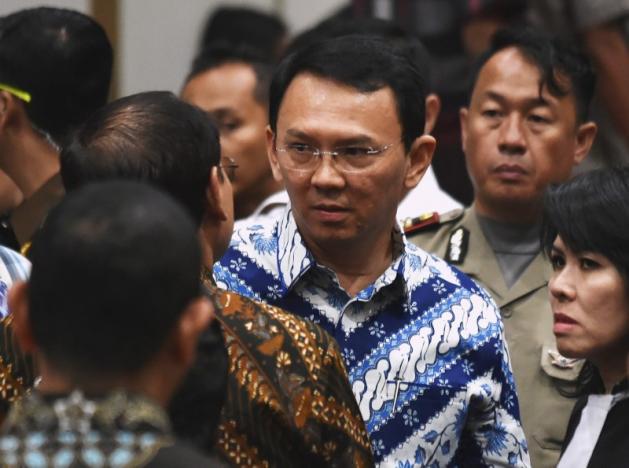Indonesia's Supreme Court rejects blasphemy appeal of Christian ex-governor

Indonesia's Supreme Court has rejected an appeal to reduce the two-year prison sentence of the former governor of Jakarta, Basuki "Ahok" Tjahaja Purnama, who was convicted of blasphemy last year for allegedly insulting the Quran.
Purnama, a Christian who is also ethnically Chinese, was convicted by a lower court in May last year after a subtitled video purporting to show the politician insulting the Quran circulated on social media.
Fify Lety Indra, who represented Purnama in court, said she believed that the North Jakarta District Court made a mistake in convicting Purnama of blasphemy and suggested the ruling be reconsidered in light of the verdict against communications lecturer Buni Yani, who was found guilty of tampering with the video footage used as evidence against Purnama.
"The legal argument for our petition is that the judges [at the district level] made a mistake in their verdict [on Ahok], particularly in relation to Buni Yani's verdict." Indra, who is also Purnama's sister, said after the preliminary hearing.
Court spokesman Suhadi had confirmed that the panel of three justices, chaired by Artidjo Alkotsar, had rejected the request for judicial review of Purnama's sentence.
"All the reasons for the appeal put forward by Ahok's team were rejected by the judge," Suhadi said, as reported by Channel News Asia.
Purnama's case review petition to the court came nine months after he was convicted of blasphemy. As the appeal has been rejected, the former governor will have to serve the remaining year and two months of his jail term.
Human rights groups have expressed concern that the Supreme Court decision could prompt a rise in the use of blasphemy laws by conservative Muslims to target non-Muslims and liberal Muslims.
"This ruling means that the blasphemy laws can be used by conservative Muslim groups for political purposes to target their nemeses, including non-Muslims and liberal Muslims," said Human Right Watch Indonesia's Andreas Harsono.
"About 76 per cent of all countries in the world do not have or enforce blasphemy laws, but in Indonesia it is being enforced more and more."
He warned that Indonesia's blasphemy laws, which were introduced in 1965, had only been used eight times up to 2004 but after the election of Susilo Bambang Yudhoyono as president that same year, 89 cases were brought to court during his rule with 89 people jailed, and another 17 were jailed for the same offense under Yudhoyono's successor, Joko Widodo.











